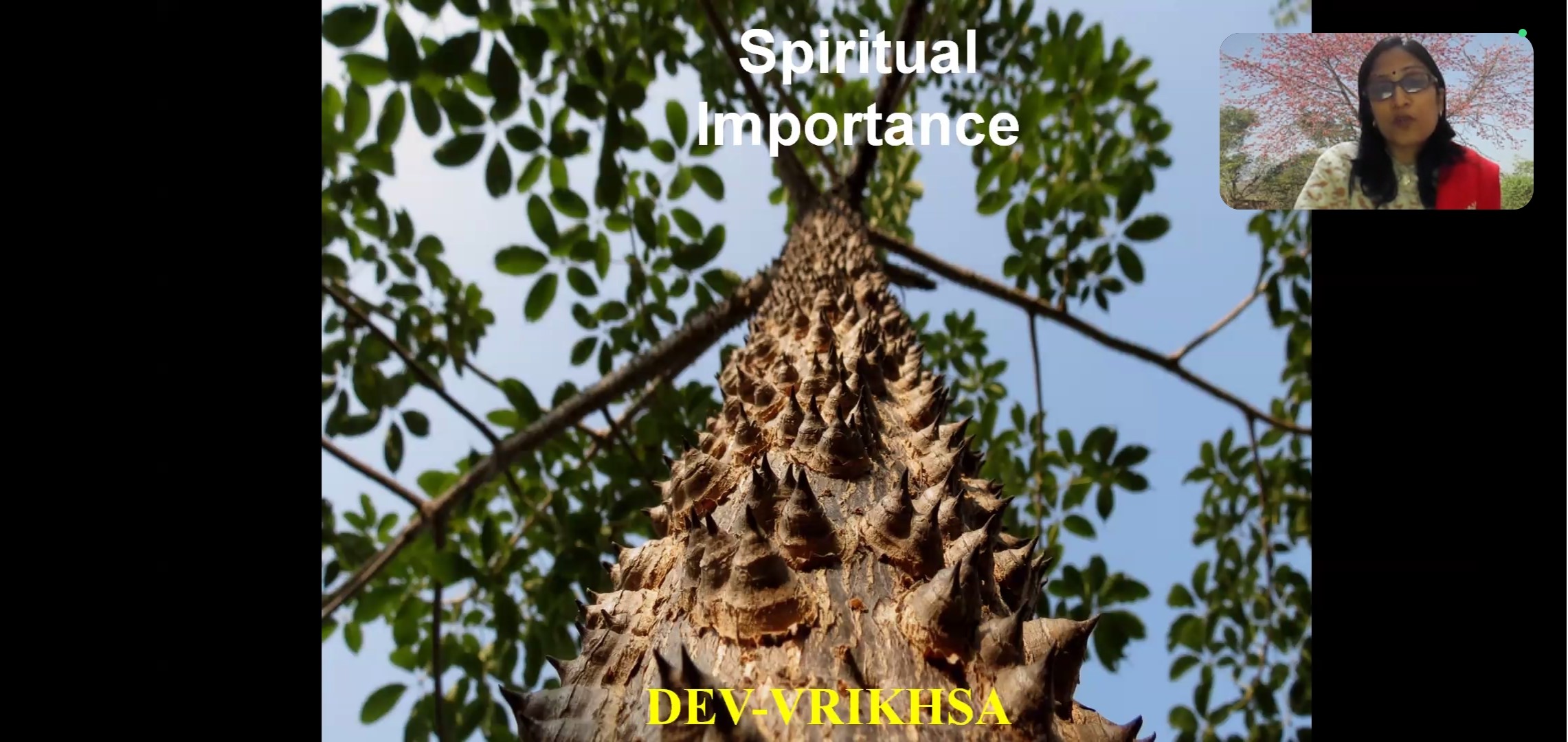
Udaipur: The Department of Botany at Mizoram University organized a two-day National Seminar on Biodiversity, Conservation, Utilization, and Commercialization of Medicinal and Aromatic Plants in a hybrid mode on February 8-9, 2024. In a technical session on February 9, Dr. Vartika Jain, Assistant Professor at Government Meera Girls College, Udaipur, Rajasthan, was invited as the keynote speaker to discuss "Semal Tree: Traditional Knowledge, the Need for Conservation, and its Blessings for Human Health."
Dr. Vartika highlighted the multifaceted importance of the versatile Semal tree, covering its spiritual, commercial, environmental, folk-medicinal, and socio-cultural significance. The Semal tree, resembling an umbrella, provides shelter to various animals and birds, and its roots, part of the Panchavati trees, play a role in preventing water erosion.
She elaborated on the diverse uses of Semal, such as in matchstick industry, boats, coffins, spoons, artificial limbs, and more. The tree's silky cotton is used in making wicks, pillows, soundproof walls, sofas, cushions, and was even employed in ancient times for constructing fortress walls.
Dr. Vartika emphasized the medicinal importance of Semal, with its seeds producing oil and dried flowers holding medicinal value. The bark, leaves, and other parts of the tree are used in traditional healing practices for various ailments like diabetes, heart diseases, gastrointestinal issues, and more. The tree also yields several chemical compounds with therapeutic significance.
While acknowledging the neglected status of Semal, Dr. Vartika advocated for its due recognition and organized an online National Seminar on Semal Tree on Maghi Purnima, February 16, 2022. She emphasized the need for collective efforts to conserve this invaluable tree, which has been diminishing in and around Udaipur. The Society for Microvita Research and Integrated Medicine (SMRIM), Udaipur, has been actively engaged in Semal conservation for the past 16 years, involving the collection of seeds and planting new saplings at various locations.
In her virtual lecture, Dr. Vartika urged everyone to appreciate each part of the Semal tree, emphasizing its roots, stem, leaves, flowers, fruits, gum, seeds, silk, thorns, and bark, each holding medicinal significance. She presented recent research findings indicating the potential of Semal in the treatment of prevalent diseases like diabetes and heart conditions.
The seminar witnessed participation from enlightened individuals and researchers from various parts of India. At the end of the event, Secretary Prof. Avadhesh Kumar expressed gratitude to Dr. Vartika for her insightful contribution.